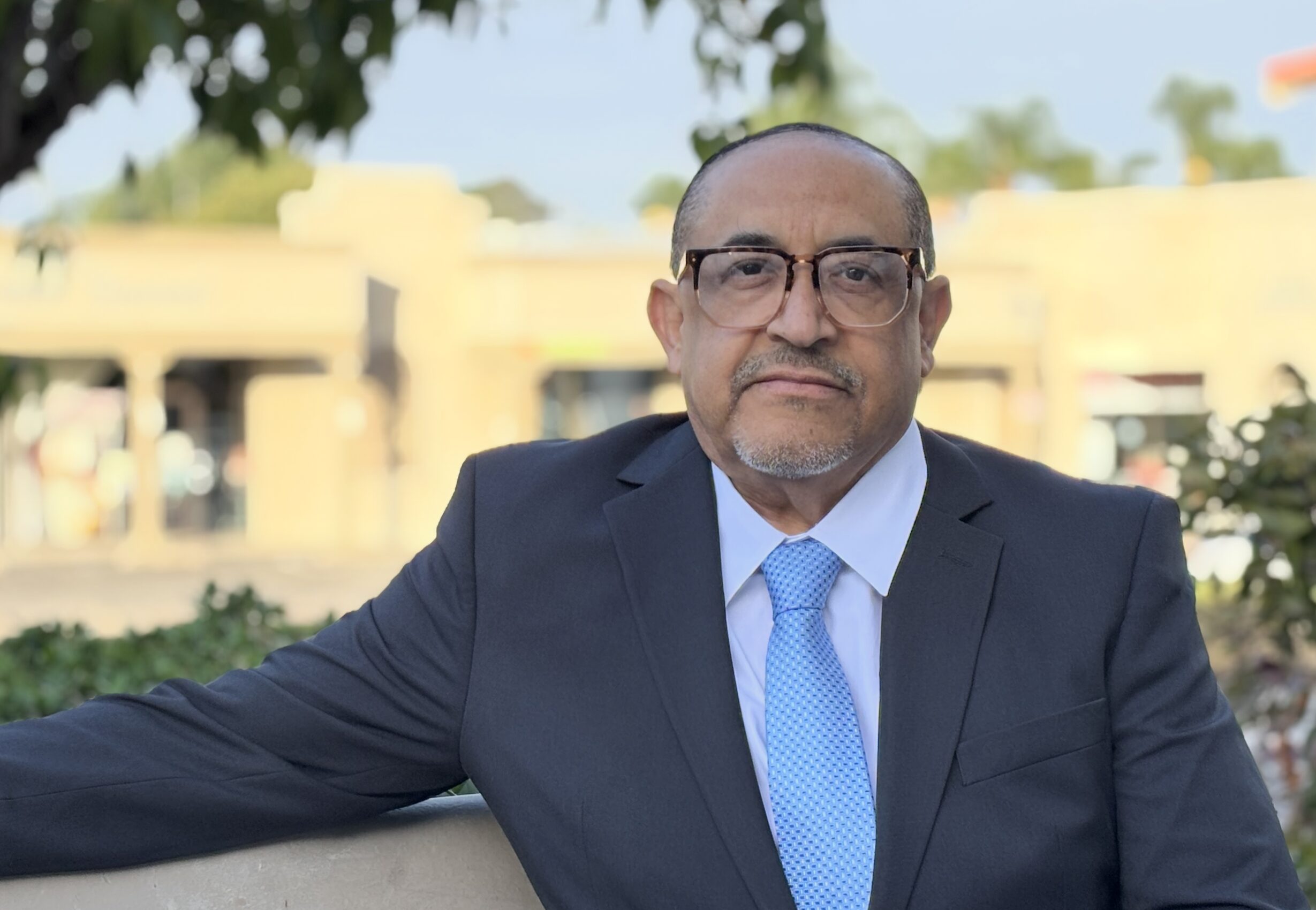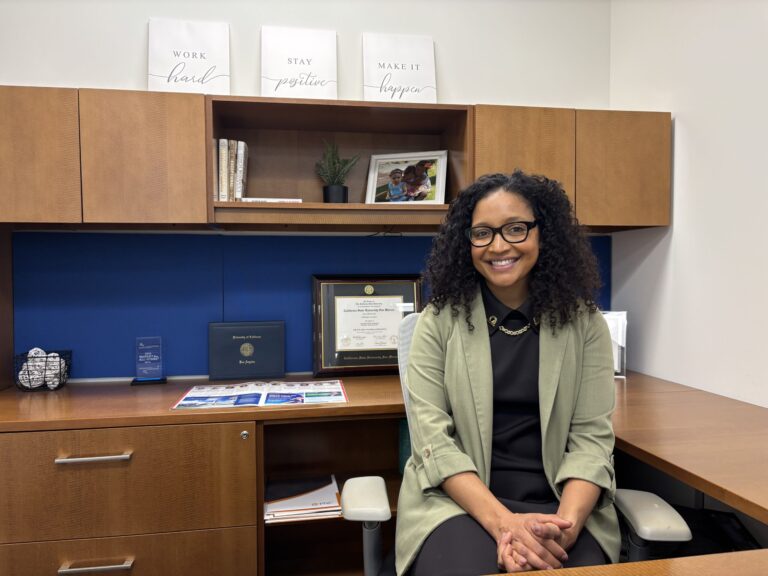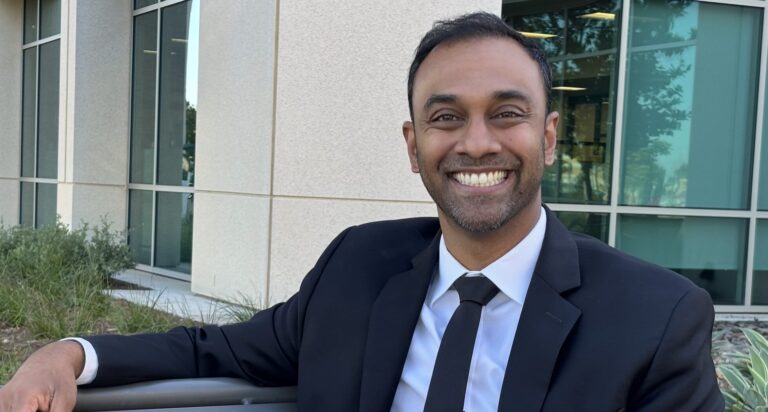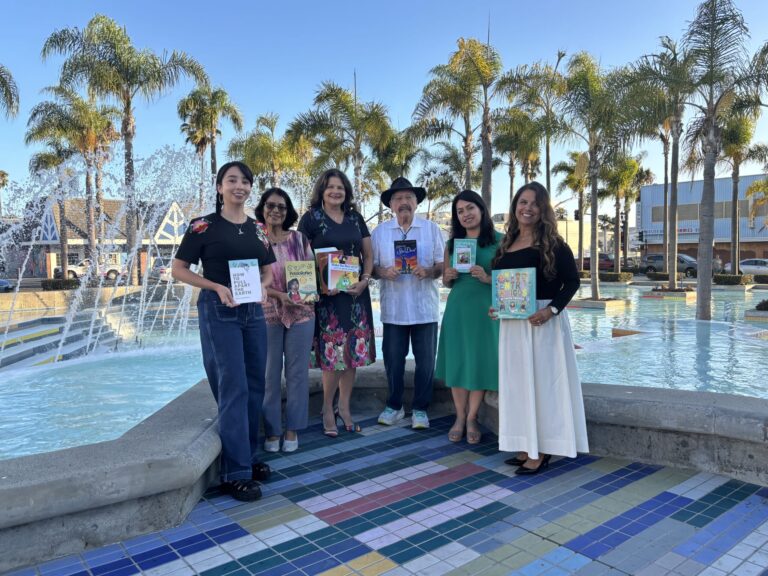The CEO of Vista Community Clinic Fights for Access, Empowerment, and Empathy for All
By Melanie Slone
At age 13, Fernando Sañundo worked at a clinic that served children from Mexico with physical disabilities, interpreting for the non-Spanish speaking doctors and walking patients to the site from the border.
“It was at this clinic that I learned early on the lack of access to care, the misunderstanding of the Latino culture, and the treatment of poor people who depended on free health care.”
Today, Mr. Sañudo’s leadership experience as CEO at Vista Community Clinic (VCC) “is rooted in resilience, humility and deep cultural connection,” he tells us. “When you understand the struggles of your community from the inside, you lead with empathy—and empathy creates lasting change.”
Knocking down Barriers
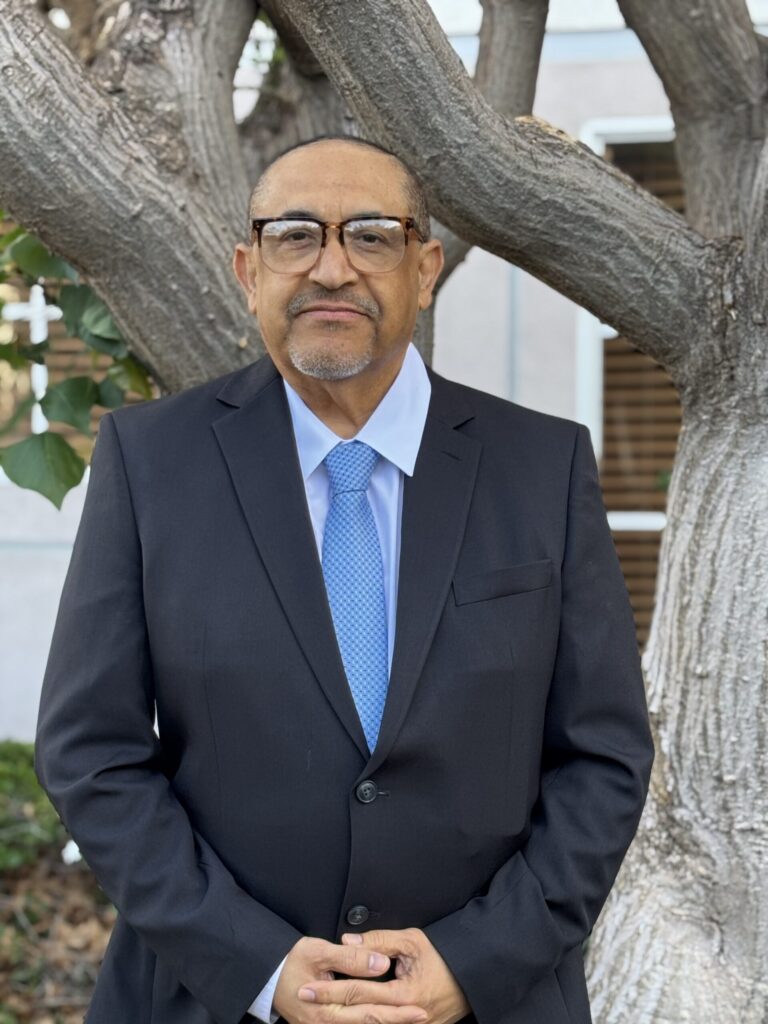
Born in Imperial County to a day laborer father from Mexico with a 6th-grade education and a mother who worked in retail, Mr. Sañudo says his first language was Spanish. “I remember we weren’t allowed to speak Spanish in the classroom…if you were heard speaking Spanish, they would take a ruler and slap your hand.”
Yet, he says, “These early lessons instilled in me a lifelong commitment to ensure that others wouldn’t face the same barriers to opportunity and dignity.”
Mr. Sañudo studied biology at UC San Diego, hoping to become a doctor. “I remember my all my classes,” he says. “Everything was in these huge auditoriums, and coming from a very small community, all that was new for me. It was very overwhelming.” Plus, while doing a medical technician certificate (EMT) program, he realized the hospital setting was not for him. “I knew I wanted to go into medicine, but I just couldn’t think of working in a hospital.”
He was blessed to be surrounded by friends who offered support and by professors who steered him in the right direction. When he participated in a volunteer internship with the County Health Department, he knew it was exactly what he wanted to do.
After getting his degree as a first-generation college student, he became the first community outreach worker ever hired with VCC, providing health education in English and Spanish, especially information about HIV. “They wanted someone who felt comfortable working with farm workers because that was one of the populations they wanted to reach out to, and I was familiar with farm workers because Imperial County has a large agricultural community.”
Today, 38 years later, Fernando Sañudo is the CEO of VCC.
Growing with VCC.
Vista Community Clinic (VCC) is a Federally Qualified Health Care Center (FQHC) funded by Health Resources and Services Administration (HRSA); it serves over 70,000 patients per year and has 15 clinic sites. Federal dollars help support the clinic, which in turn must meet certain standards and provide data to back up its programs.
What VCC offers
- Provides services to everyone insured or uninsured; most patients are Medi-Cal or Medicare, but some have commercial insurance.
- Eliminates barriers to care by serving all patients, regardless of income, immigration status, or insurance coverage.
- Keeps patients out of the costly emergency rooms at the hospitals; has a direct relationship with Tri-City Medical Center that sends patients back to VCC if the patient does not have a medical home or established primary care doctor.
- Strengthens local economies by providing jobs (900+ employees), training opportunities, and community partnerships.
- Full spectrum of healthcare services designed to support individuals and families through every stage of life:
- Primary and preventive care: annual exams, immunizations, chronic disease management
- Pediatrics and adolescent medicine
- Podiatry—medical treatment for the foot, especially for diabetic patients
- Mobile dental and medical vans at community events, schools, and local nonprofit events
- Mobile Food Pantry
- Medication Assisted Treatment (MAT)is an evidence-based approach to treating substance use disorders. It combines the use of FDA-approved medications with counseling and behavioral therapies to provide a “whole-patient” approach to treatment.
- Behavioral health services: counseling, psychiatry
- Women’s health and prenatal care, supporting mothers and babies and family-planning services
- Dental and vision care
- Senior care through the PACE program, helping older adults remain independent while receiving coordinated medical and social support
- Community and outreach programs including health education, nutrition, housing assistance, and youth development programs
Awards
- VCC has been honored repeatedly by HRSA as a Gold Quality Leader, placing it among the top 10% of 1,300+ health centers nationwide. It is the only clinic in San Diego County to receive this recognition.
- Blue Shield Promise Health Plan honored VCC with the Leading the Way Visionary Award, the highest recognition given to any individual health center by a health plan.
When Mr. Sañudo was hired at VCC in 1987, there were about 40 employees. Today, there are some 1,000. He started at the ground level and worked his way up, building trust between community members and representatives from healthcare institutions.
His first job included going to the agricultural fields in North County, establishing relationships with the owners of the agricultural fields, and convincing them to let him go educate the workers on health topics, including HIV prevention. He also provided education for the Marines at Camp Pendleton and for high-risk adolescents, many of them in juvenile hall.
Calling himself an introvert, Mr. Sañudo says public speaking nonetheless became his full-time job. Thanks to his degree in biology, “I understood diseases and how they work and how to prevent them.” He was also one of the few VCC employees able to translate the information into Spanish.
He began to move up within VCC, eventually being promoted to the director of the health promotion program. Working in that capacity pushed him to get his master’s in public health from San Diego State.
That was when he realized the lack of Latino representation in health. “Even though we’re in San Diego County and we have a large Latino population, I was one of two Latinos in a class of 40…I had already been working in the field for five years and I knew that we needed more Latinos like myself because we were targeting predominantly the Spanish-speaking population and the immigrant population.” There were also very few Latinos in leadership positions at that time. “My education in public health became a tool not just for career advancement, but for community empowerment,” he says.
Sometime later, the CEO of VCC asked him if he would be interested in participating in a succession plan, meaning being trained to take over for her as CEO when she left or retired, which happened 12 years later. “My transition into the CEO role wasn’t about ambition—it was about stewardship,” he says.
Community Clinics Are Essential
Mr. Sañudo believes community health centers like VCC are essential. “Without the community health centers, a lot of the populations that we serve would not have access to healthcare.” He explains that many low-income groups, immigrants, or Medi-Cal recipients rely on clinics because it is virtually impossible for them to see private doctors. To keep them out of emergency rooms and make sure they get treated before they become very ill, local clinics like VCC have stepped up.
Many patients face other conditions that lead to or worsen their health issues. “That’s what community clinics are about. We do more than just the medical side. The federal government uses the term ‘social determinants of health’—all the things that impact your ability to maintain a healthy lifestyle, and that’s what the clinics provide.” These services include case management for high-risk patients that need assistance with resources for housing, emergency shelters, food, specialty care, drug and/or alcohol addiction treatment, transportation, and much more, he says.
Initiatives and Projects
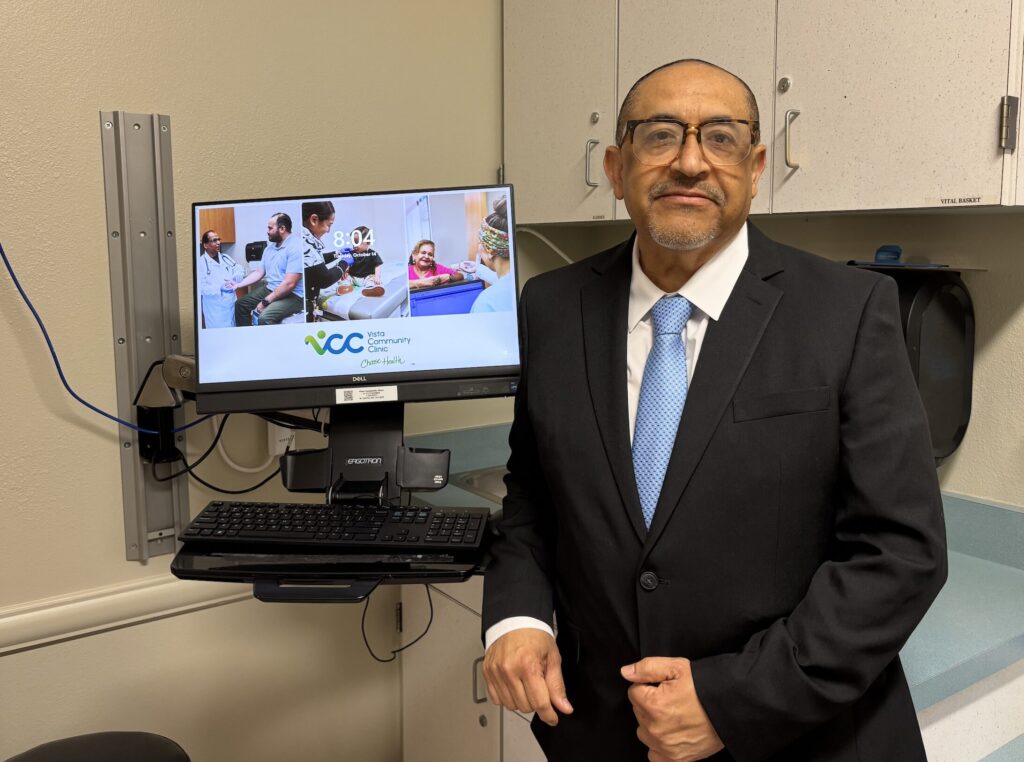
Mr. Sañudo has led several initiatives at VCC, including helping to launch an assistant training program. “Medical assistants are desperately needed,” he says. Together with the director of nursing at Cal State San Marcos, he created a six-month intensive medical assistant training program with 2 cohorts a year of 30 students each. The cost is minimal, and help is available for students who are passionate about the career path.
Over 400 young people have gone through the training, many who did not have enough money to get into the health field any other way. “I wanted to start something that would be much less expensive and would take less time,” he says. “We just graduated our 17th cohort…They graduate in six months, and most of these students have jobs before they even finish the program.”
Other accomplishments include working with others to bring in grant money to VCC and helping expand healthcare services for low-income and underserved populations in San Diego, Riverside, Orange, and Los Angeles counties.
Meanwhile, he has taught nonprofit management at the master’s level, co-authored articles on HIV prevention, and reviewed HIV-related grant applications for the Center for Disease Control (CDC) and public-health focused grant applications for The California Endowment and the San Diego Foundation.
Because he believes healthcare is part of strong community development, Mr. Sañudo has served on several boards and committees advocating for healthcare equity, immigrant rights, and sustainable community development.
He has also had the opportunity to advocate at the city, county, state, and federal levels. “I’ve gone from working with communities hand in hand—being able to roll up my sleeves and participate in health fairs and going out to the farm sites—to sitting at board meetings with the local congresspeople, talking about some of the struggles our populations deal with and why some of these initiatives we’re promoting are important to keep the population we serve healthy.”
Tips for others
Mr. Sañudo urges young people getting started in health care to remember where they come from. “Whether you become a professor, a nurse, a business owner, or a CEO, remind yourself to stay connected to your community and use your skills to make a difference,” he says. “Draw strength from your families, your communities, and your shared experiences because these are the foundations that build our resilience, empathy, and authenticity. All these things make great leaders.”
He also focuses on education. “We need Latino professionals, especially physicians, nurse practitioners, and physician assistants,” he says. Moreover, “a college education gives you the skills you need to find a career, not just a job.” He worked his way through his undergraduate and master’s degrees and encourages others to double down, put in the time to finish school, and seek out scholarships. “Don’t let the barriers define you. Use them as your strength to persevere, move forward, and make an impact.”
As a Latino in a CEO and community-leader role, Fernando Sañudo embodies the soul of the community—facing challenges head on, forging his own path to success, and leveraging his experience to serve others, bringing quality healthcare to communities across the North County and beyond.

